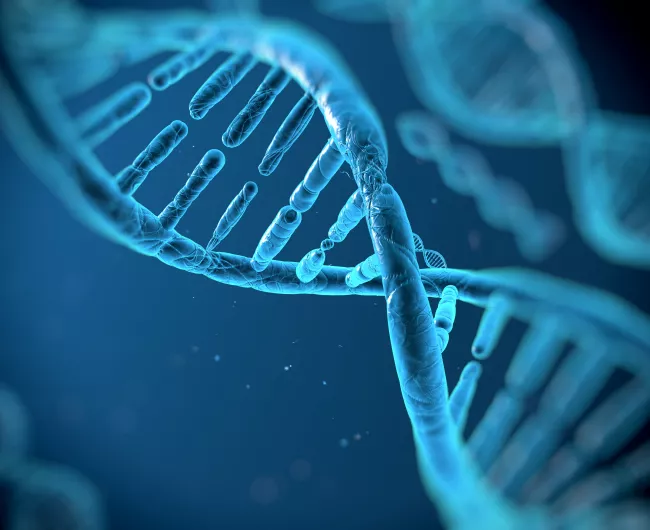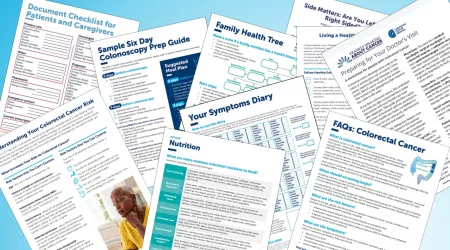Family history and colorectal cancer
Family history can determine your cancer risk. About one in four colorectal cancer patients have a family history of colorectal cancer.
It runs in the family: colon cancer genetics
In this webinar we cover everything from what it means to have a cancer family history to the importance of talking with your healthcare provider.


What is your background?
About one in four colorectal cancer patients have a family history of colorectal cancer.
A family history of colorectal cancer means any of the following are true:
- At least one immediate family member (parent, brother, sister, child) was diagnosed under the age of 60.
- Multiple second-degree relatives (grandparents, aunts, uncles, etc.) were diagnosed with colorectal cancer or advanced polyps (risk increases if diagnosed before the age of 45).

Inherited conditions
About 5-7% of colorectal cancer patients inherited a gene mutation that greatly increased their lifetime risk.
These mutations include:

Genetic factors
These genetic factors also increase your lifetime risk of being diagnosed with colorectal cancer:
- You have a cluster of family members diagnosed with colorectal cancer, referred to as familial colorectal cancer.
- You inherit a harmful DNA mutation from a parent. This impacts approximately 5-7% of all colorectal cancer patients.

Family history and screening
People with a family history of cancer should getscreened atage 40 or 10 years before the youngest case in your immediate family, whichever is earlier.
Talk to your family and learn your family history. Then share that information with your doctor.
Genetics and your risk
Genetic and Inherited ConditionsTop resources

Legislation introduced to address young-onset CRC
Explore the urgent need for the Colorectal Cancer Early Detection Act (HR 7714), legislation aimed at combating the rising incidence of colorectal cancer among younger adults through enhanced screening, education, and research.

Christy Williams: Biomarker testing leads to successful treatment
Statistics suggested that Christy’s odds of survival were grim, so she leaned into her faith and kept a positive outlook. She tried to control what she could. And, critically, she received biomarker testing.

Colorectal cancer resources for learning and sharing
Whether personally impacted by colorectal cancer (CRC), supporting a loved one, or dedicated to educating and empowering others, these downloadable and printable resources can help.





